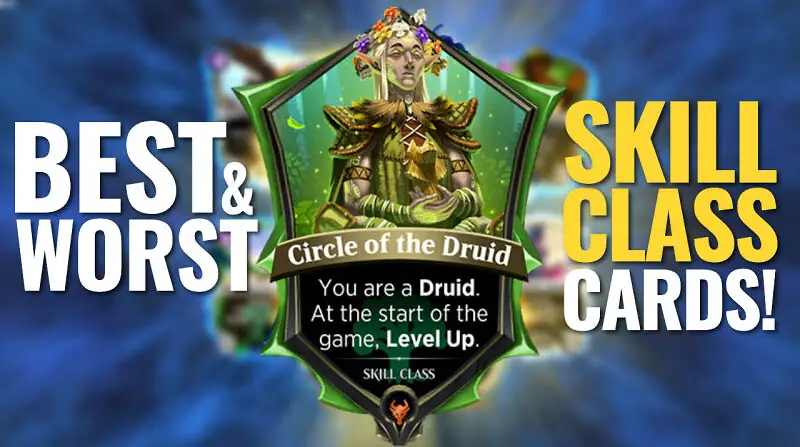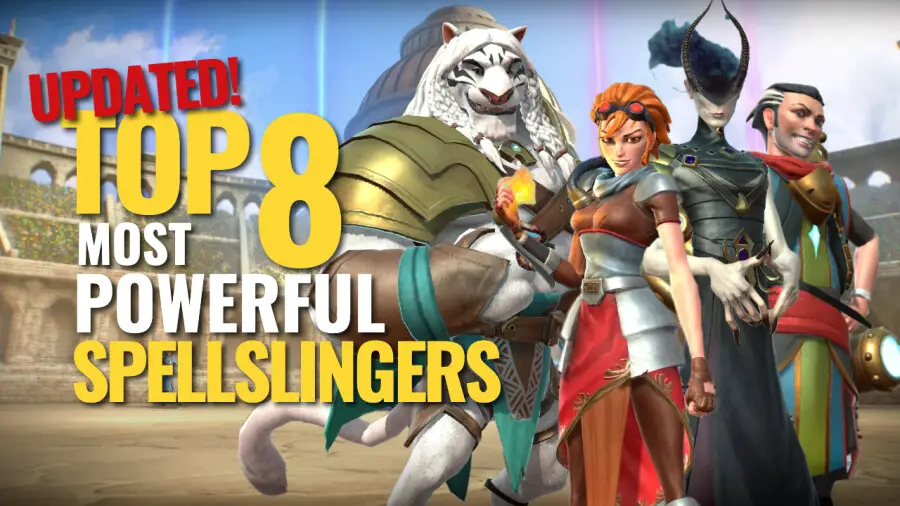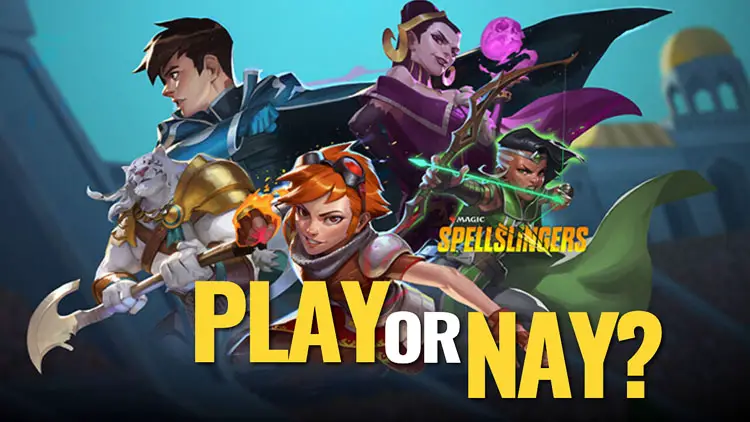As the new Magic-spinoff Spellslingers is heading toward its 1st expansion D&D Icons, some of you might still be a little confused with some of the new keyword mechanics that are not found in the original Magic: the Gathering. That said, there are also a few keywords that are translated faithfully into Spellslingers. Here’s a complete rundown of all the keywords in Spellslingers:
Keywords Originally from Magic: the Gathering
Trample
One of the classic keywords transported over from Magic, Trample means any excess damage beyond a blocker’s Toughness is dealt to the opponents. This is important when you have a 5/5 with Trample against the opponent’s 5/1 blocking Creature. Without Trample, both Creatures would simply trade. However, with Trample means the excess 4 damage is dealt to the opponent.


Trample can be a very useful keyword for decks with high-powered Creatures and rely on them to defeat the opponent.
Flying
Yet another classic keyword is Flying, which lets Creatures “fly” over any non-flyers when attacking. It is a form of evasion since the majority of Creatures actually do not have Flying. Since attacking in Spellslingers does not stop that same Creature from blocking the next turn, having Flying is a major advantage
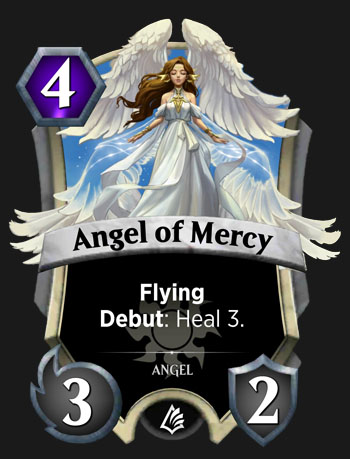
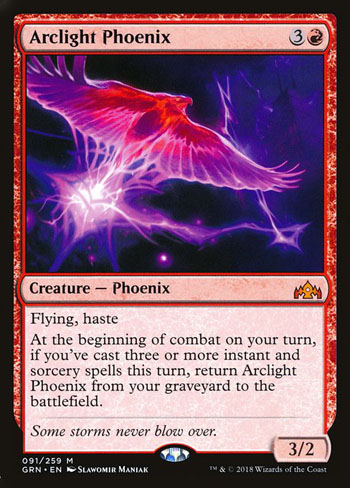
Haste
Haste is an ability that allows any Creature that has just been cast, the option to attack that same turn. In Magic, this prohibition was called Summoning Sickness, and later on the keyword Haste was introduced to mean “unaffected by Summoning Sickness.”
Creatures with Haste can easily catch an opponent off guard as they might have been scrambling to clear your attackers. Dropping a hasty Creature while they have no more blockers means a direct hit and is crucial for more aggressive decks since they want to deal damage fast.
Keywords New to Spellslingers
Armour
Armour is one-time shield that is used up once a Creature has absorbed damage. Any damage, be it 1 or 10 from a single source will be cancelled out by Armour, and after that the Armour ability is lost.
Note that Armour doesn’t prevent “destruction” effects from spells such as Flagrant Foul. In the original Magic: the Gathering game, the closest equivalent to Armour are Shield counters and Totem Armour. However both will also counter a “destroy” effect unlike Armour in Spellslingers.
Debut
Debut is a new keyword not used in the original Magic game, but effectively means the same as “Enters the Battlefield.” Debut effects trigger when a Creature has been successful cast (and not countered like Remand or Absorb) and thus officially hits the game board.

Creatures with Debut have a nice immediate effect since it doesn’t have to die or attack before the trigger happens. Debut abilities could be as simple as dealing damage to an enemy Creature or giving a friendly Creature a buff such as +1/+1 or Flying.
Finale
Finale is a death trigger, rephrasing “when this dies” in Magic. Finale effects will only happen when that Creature dies, and for Spellslinger Vraska, Finale is especially important because those triggers happen twice on her turn.

While Finale is perfectly catered for Vraska players, it is also a nice ability to have as insurance against the loss of your Creature. Some Finale effects deal 2 damage to the opponent directly, while others could draw you a card, effectively replacing the Creature that was just lost.
Relentless
Relentless is a variation of Finale, with a very specific death trigger: When a Creature with Relentless dies, it comes back from the Graveyard with its original stats, except that it cannot block. You’re basically getting 2 Creatures for the cost of 1, with a little drawback for the revived one.

The inability to block can be an important factor in certain games where your life total is low and the opponent still has a full board of Creatures. While you can attack to apply pressure and hope the opponent will block, the counter attack can be game winning since your revived Creatures cannot block.
Sneak
Sneak a neat keyword that means a Creature cannot be blocked. However it only lasts for 1 turn and goes away after that. It’s a way for players to get damage in to trigger their Spellslingers’ ability. Kaya and Angrath both rely on damage dealt to opponents, hence Sneak is an excellent keyword for them to take advantage of.

Interestingly, if your Creature has Sneak, but the opponent has no blockers, the Sneak ability does not go away even after attacking. It’s a nice gesture by the developers so that cards don’t feel like they’ve been wasted even if they haven’t been utilised.
End Step
So far, Spellslingers is a much less complex game than the original, and that works for new players new to Magic: the Gathering. As more updates are rolled out, expect more keywords to be revealed, and check back here often for updates.


